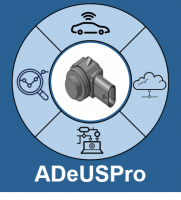Background
Keywords:
Electronic Production, Data Science, Artificial Intelligence, Causal Machine Learning
Task Description
This thesis focuses on the development and application of causal machine learning methods to identify and leverage genuine cause-effect relationships in the automated manufacturing of ultrasonic sensors. The project will involve working with real production data and state-of-the-art causal inference techniques to drive tangible improvements in manufacturing processes:
Key objectives and tasks include:
-
- Development of Causal Models:
- Create sophisticated causal models capable of simulating specific interventions in the production process.
- Quantify the effects of these interventions on product quality, resource consumption, and overall efficiency.
- Utilize frameworks such as DoWhy or CausalNex to implement structural causal models.
- Implementation of Causal Inference Methods:
- Apply causal inference techniques to investigate the impacts of process changes.
- Evaluate how these changes influence production efficiency and costs.
- Explore methods like propensity score matching, instrumental variables, or difference-in-differences for causal estimation.
- Analysis of Real Production Data:
- Work with complex datasets from actual ultrasonic sensor production lines.
- Uncover hidden causal relationships that might be overlooked by conventional analysis methods.
- Integrate data from multiple sources, including sensor readings, image data, and process parameters.
- Validation and Testing:
- test the developed models and tools using historical data
- Collaborate with production engineers to validate findings and ensure practical applicability
- Development of Causal Models:
Benefits
- Application-oriented research within an industrial project in the automotive sector
- Opportunity to work in an advanced field of artificial intelligence
- Possibility to solve real industrial problems with cutting-edge technologies
- Flexible working conditions with the option to work remotely
- Theoretically, 100% remote work is possible
Prerequisites
- Excellent knowledge of German or English language
- Very High self-motivation and a certain affinity for IT
- Structured and independent work style
- Prior knowledge of Python
Please submit applications with a CV and current transcript of records via email to Sven.Meier@faps.fau.de. For further information about the scope and specific focus of the work, I am available for a personal conversation.
Kontakt:
Sven Meier, M.Sc., M.Sc.
Department Maschinenbau (MB)
Lehrstuhl für Fertigungsautomatisierung und Produktionssystematik (FAPS, Prof. Franke)
- Telefon: +491622603753
- E-Mail: sven.meier@faps.fau.de

